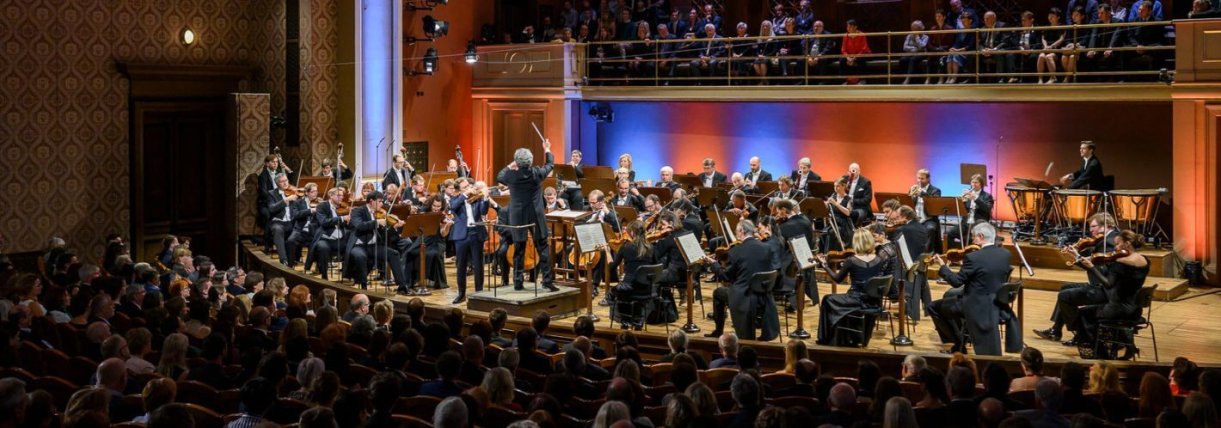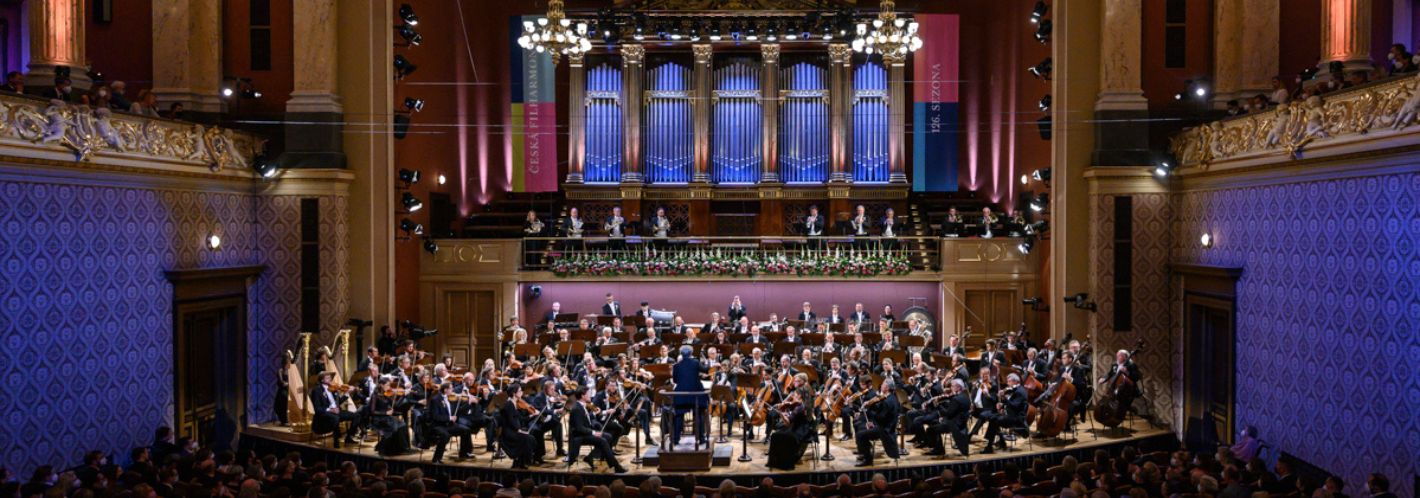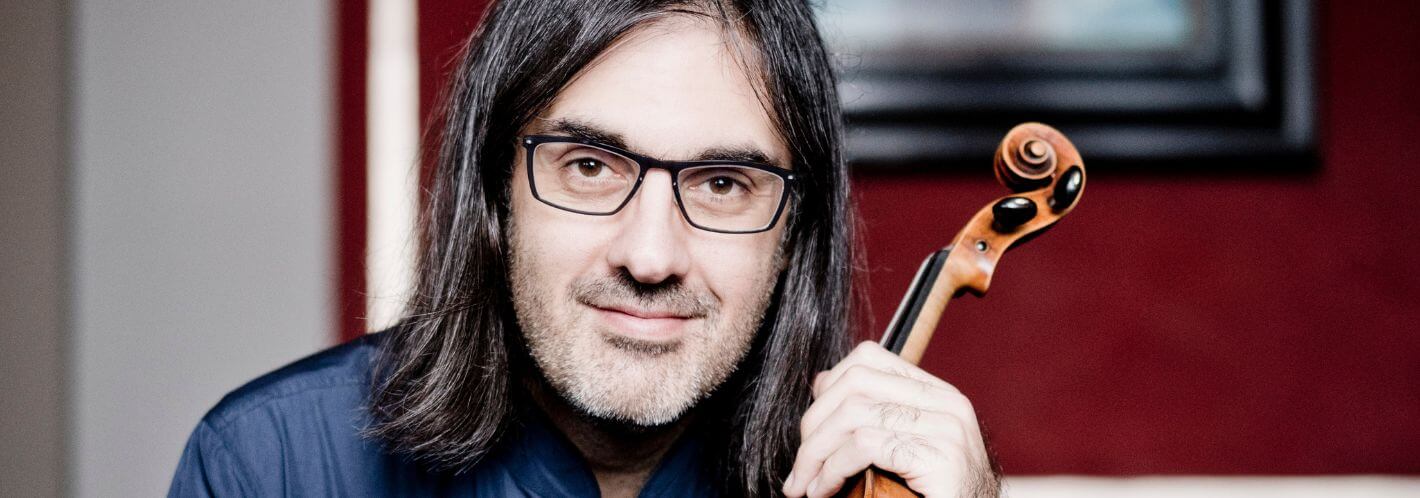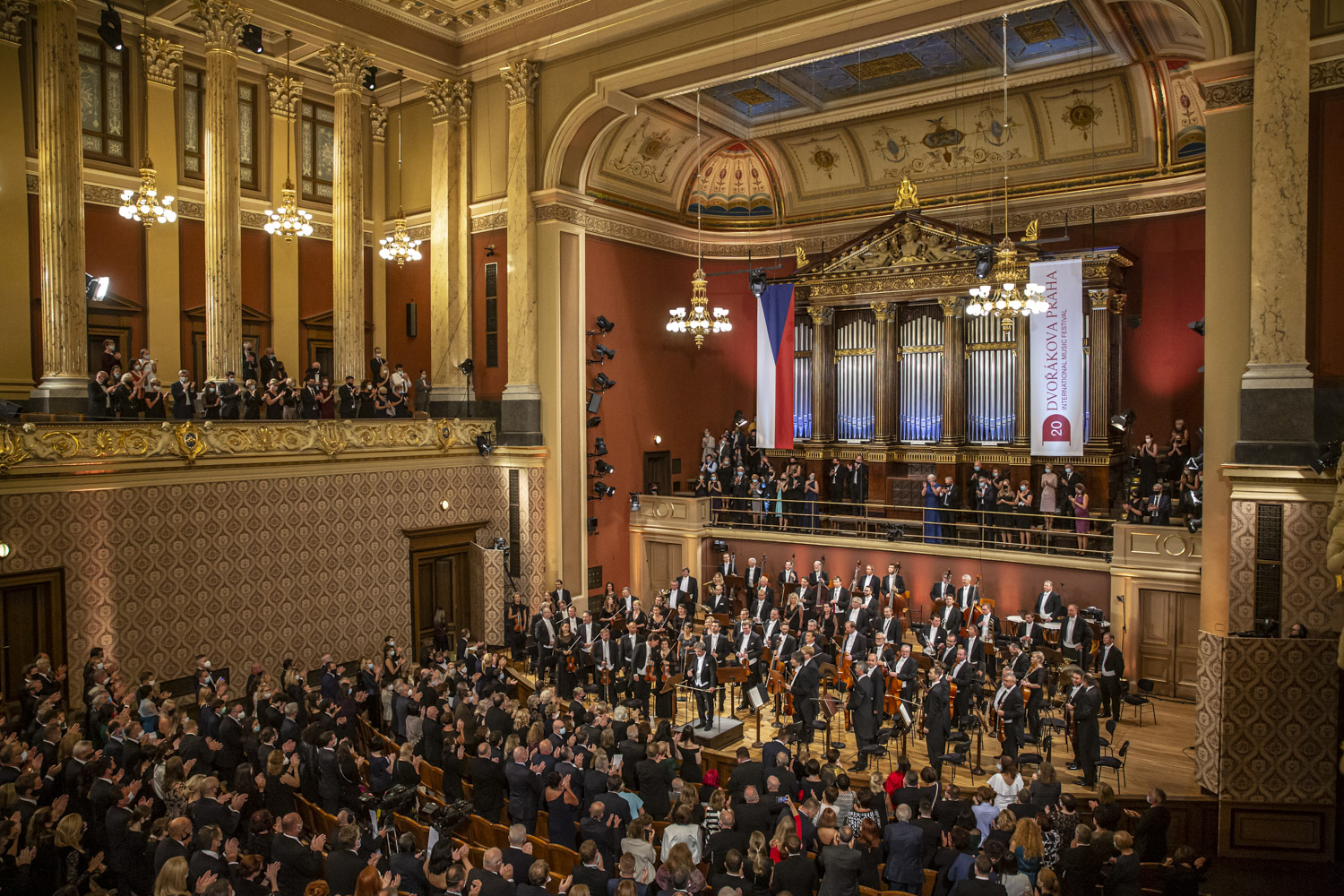
Wolfgang Amadeus Mozart: Violin Concerto No. 3 in G Major, K. 216
Sergei Prokofiev: Symphony No. 6 in E flat Minor, Op. 111
Bringing Mozart to Prague may seem like bringing sand to the beach. However, Greek violinist and conductor Leonidas Kavakos convinces even experts that it is possible to discover new aspects of well-known music. A lucid, urbane Mozartian, as he is described by the British magazine Gramophone, Kavakos will perform Violin Concerto No. 3 with his gracefully elegant sound while also conducting the entire performance with his Stradivarius in his hands. This was common practice during the era in which Mozart stayed in Prague and his performances were received enthusiastically. Kavakos will also conduct Sergei Prokofiev’s Symphony No. 6, this time without his violin. The symphony’s elegant music with a slight intrinsic melancholy seems to shake hands with Mozart across the centuries. It is hard to believe that the symphony’s universal lucidity was a thorn in the side of communist reviewers: on the instructions of the Stalinist authorities, even those who had ardently praised it a few days earlier rejected it. Its beautiful music will allow all to mercifully forget these injustices while remembering them well at the same time.
Gramophone’s 2024 ‘Orchestra of the Year’, the Czech Philharmonic gave its first concert – an all-Dvořák programme conducted by the composer himself – in the famed Rudolfinum Hall on 4 January 1896. The Orchestra is acknowledged for its definitive interpretations of Czech composers and recognised for its special relationship with the music of Brahms, Tchaikovsky, and Mahler, who conducted the world première of his Symphony No. 7 with the Orchestra in 1908. It is currently recording the complete cycle of Mahler symphonies with Chief Conductor and Music Director Semyon Bychkov for Pentatone.
The Czech Philharmonic’s extraordinary and proud history reflects both its location at the very heart of Europe and the Czech Republic’s turbulent political history, for which Smetana’s Má vlast has become a potent symbol. 2024 was the Year of Czech Music, a major celebration launched on the bicentenary of Smetana’s birth and held across the Czech Republic every ten years. The Czech Philharmonic marked Smetana’s bicentenary with a series of concerts at the Smetana Litomyšl Festival, including a rare concert performance of his opera Libuše, conducted by Principal Guest Conductor Jakub Hrůša.
The contribution of the Czech Philharmonic and Semyon Bychkov to the Year of Czech Music was the Dvořák Festival, a combined performance of three overtures, instrumental concerts, and the last three symphonies of Antonín Dvořák, both in Prague and on tour in South Korea, Japan, Spain, Austria, Germany, Belgium, and France. The highlight of the Year of Czech Music performed by Semyon Bychkov and the Czech Philharmonic was a series of three concerts in New York's Carnegie Hall.
Alongside the Czech Philharmonic’s Youth Orchestra, Orchestral Academy, and Jiří Bělohlávek Prize for young musicians, a comprehensive education strategy engages with more than 400 schools, bringing students of all ages to the Rudolfinum – some travelling as long as four hours – to hear concerts and participate in workshops. An inspirational music and song programme led by singer Ida Kelarová for the extensive Romani communities within the Czech Republic and Slovakia has helped many socially excluded families to find a voice.
An early champion of the music of Martinů and Janáček, the works of Czech composers – both established and new – remain the lifeblood of the Orchestra. Instigated by Semyon Bychkov at the start of his tenure, nine Czech composers and five international composers – Detlev Glanert, Julian Anderson, Thomas Larcher, Bryce Dessner, and Thierry Escaich – were commissioned to write for the Orchestra.
source: Česká filharmonie

Leonidas Kavakos is recognized across the world as a violinist and artist of rare quality, acclaimed for his matchless technique, his captivating artistry and his superb musicianship, and the integrity of his playing. Kavakos works regularly with the world’s greatest orchestras and conductors and appears in recital at the world’s premier recital halls and festivals. In recent years, Kavakos has built a strong profile as a conductor and has conducted such orchestras as the New York Philharmonic, Bavarian Radio Symphony Orchestra, Dallas Symphony, Vienna Symphony, Orchestre Philharmonique de Radio France and the Filarmonica della Scala.
Kavakos is an exclusive recording artist with Sony Classics. Releases have included the Beethoven Violin Concerto which he conducted and played with the Bavarian Radio Symphony Orchestra, and the re-release of his 2007 recording of the complete Beethoven Sonatas with Enrico Pace, for which he was named ECHO Klassik Instrumentalist of the year. In 2022 Kavakos released Beethoven for Three: Symphony No. 6 “Pastorale” and Op.1, No. 3 arranged for trio, with regular recital partners Emanuel Ax and Yo-Yo Ma. Further albums from this series containing arrangements of Beethoven symphonies will be released in coming years. With his chamber group the ApollΩn Ensemble, he recently released Bach: Violin Concertos to critical acclaim. Kavakos was named Gramophone Artist of the Year.
Born into a musical family in Athens, Kavakos curates an annual violin and chamber music masterclass in Athens, which attracts violinists and ensembles from all over the world. In 2022, he was declared a regular member of the Chair of Music in the Second Class of Letters and Fine Arts for his services to music. Kavakos plays the “Willemotte” Stradivarius violin of 1734.
source: Intermusica

The Rudolfinum is one of the most important Neo-Renaissance edifices in the Czech Republic. In its conception as a multi-purpose cultural centre it was quite unique in Europe at the time of its construction. Based on a joint design by two outstanding Czech architects, Josef Zítek and Josef Schultz, a magnificent building was erected serving for concerts, as a gallery, and as a museum. The grand opening on 7 February 1885 was attended by Crown Prince Rudolph of Austria, in whose honour the structure was named. In 1896 the very first concert of the Czech Philharmonic Orchestra took place in the Rudolfinum's main concert hall, under the baton of the composer Antonín Dvořák whose name was later bestowed on the hall.
